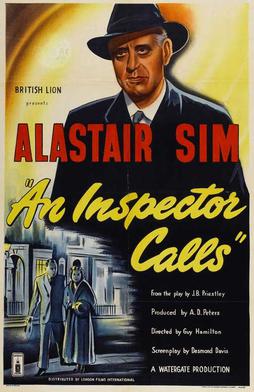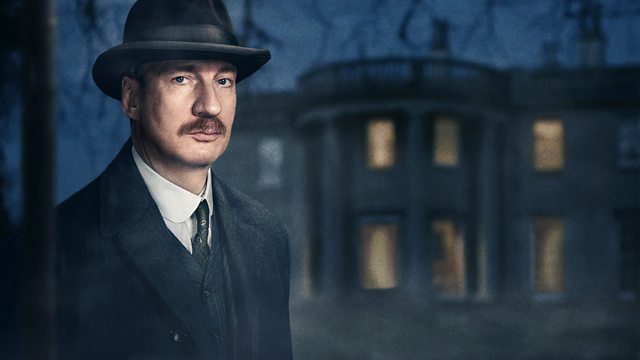
An Inspector Calls
An Inspector Calls
An Inspector Calls: morality, legality, social responsibility… and why, in a GCSE English exam, you should never mention Sheila’s hat.
J. B. Priestly’s An Inspector Calls is one of the most popular choices for GCSE English Literature. There is roughly 60% of students answering on it each year.
To succeed in the exams, make sure that you learn the text well, as examiners are often impressed by students who show a good understanding of it in their answers, and remember to consider the play as a whole, which examiners consider “vital” when it comes to awarding marks. Make sure that you also consider dramatic elements like stage directions and lighting. They can help flesh out your answer and demonstrate that you’re thinking about the play in terms of live performance. Instead of just words on a page.
Finally, it’s also a good idea to consider differences between modern and contemporary responses to and interpretations of the play. If you do decide to watch adaptations, make sure you’re clear on the differences between Priestley’s play and directors’ interpretations. For example, Sheila’s hat, which appears in a BBC adaptation but not the actual text. This should not be mentioned in a GCSE exam.

An Inspector Calls – Background and context
Background
First performed at the New Theatre in October 1946. The original cast of An Inspector Calls included Sir Alec Guinness, who later played Obi-Wan Kenobi in the first Star Wars film. Also, Margaret Leighton, who won an Emmy for her later role as Queen Gertrude in Hamlet. This is one of Priestley’s best-known works, the play is considered a classic example of drawing-room theatre. The book was praised for its criticism and exposure of the hypocrisy of Edwardian high society.
Priestley, a committed socialist who attracted controversy for his radial, left wing views, made sure to pack a powerful dose of politics into his writing. An Inspector Calls explores the breakdown of moral and social values. It also highlights the disintegration of pre-World War I English society. With Inspector Goole’s final speech sometimes interpreted as a socialist manifesto. The play also poses questions about blame and personal responsibility. Priestley’s key moral message – that we all have a duty to society. That society will collapse if we do not choose to honour it. This is as true today as it was when the play was written.
Context
The play also explores social class, a rigid concept for the Edwardians. Whom it was frowned upon to mix with people from different social backgrounds. There was also a lingering notion of the “goodness” of the upper classes. It was seen that their superior knowledge helped society to prosper. The play’s third act debunks this as a myth. The distance between the year in which the play is set (1912), and the year in which it was performed (1946) affords the audience a great sense of dramatic irony. This is where the audience know more than the characters do. Particularly on the occasions when Mr Birling insists that nothing in the world will change or go wrong. This is something which the audience (having since experienced two World Wars) immediately knows is untrue.
The Plot Overview
An Inspector Calls is a three-act drama, taking place over the course of a single night in April 1912, a significant date due to its proximity to the outbreak of World War I (in 1914) and to the sinking of the Titanic – which in Act One Mr. Birling refers to as “unsinkable” – also in April 1912.
The play is set at the house of the Birling family, a prosperous upper-middle-class family living in Brumley, a fictional town in the North Midlands. After dinner, the family is visited by a man calling himself Inspector Goole, who questions them about their connections to a young working-class woman, Eva Smith, who has recently committed suicide. Each member of the Birling family, as it turns out, has a role to play in the young woman’s death, and while no single one person is solely
responsible, together they form a representation of a class system that exploited (and, it is implied, continues to exploit) neglected and vulnerable women.
Act One/Two
In Act One, we learn that Eva was sacked by Arthur Birling, the head of the household, for asking for fairer wages, while his daughter Sheila, acting out of jealousy, also had her sacked from her job at a dress shop. It transpires that Gerald, Sheila’s fiancé, also knew her, although the details of this only emerge when he admits to having had an affair with her in Act Two, and Mrs Birling also admits to knowing the girl, having refused to support her when she appealed to Mrs Birling’s charitable committee for financial support because she was pregnant.

Act Three
In Act Three, we learn that Eric, the youngest of the Birlings, was also in a relationship with Eva, stealing money to support her after finding out that he is the father of her baby. The inspector’s final speech, about social responsibility, leaves the family shaken and distressed. This is until they discover that Inspector Goole does not exist and that no suicides have been reported that evening. Delighted, all but Sheila and Eric are ready to brush off the evening as little more than a practical joke. The telephone rings with news that a girl has died after drinking disinfectant. Also that an inspector is on his way to the house to ask questions.
The play debunks a number of social myths, including middle-class philanthropy towards the poor. This is based on presumptions of charity-givers’ social superiority and severe moral judgement towards the “deserving poor”, and the romantic idea of gentlemanly chivalry. This is expressed as being based on male lust and sexual exploitation of the weak by the powerful. In Goole’s final speech, Eva Smith is referred to as a representation of millions of other vulnerable working-class people. It can be read as a call to action for English society to take more responsibility for the working class. This is an idea prefiguring the development of the post-World War II welfare state.
Other GCSE Resources
Explore our comprehensive collection of resources tailored for GCSE English and exam preparation. We’ve curated materials covering a range of topics, ensuring you have the support you need to excel in your studies. Here are some key focus areas:
The Curious Incident of the Dog In The Night-time
Feel free to browse through these materials to enhance your preparation for the GCSE exams. If you have any specific queries or need additional resources, don’t hesitate to reach out.
Get In Touch
-
Give us a call
020 8883 2519 -
Email us
hello@mentoreducation.co.uk -
Our social media


